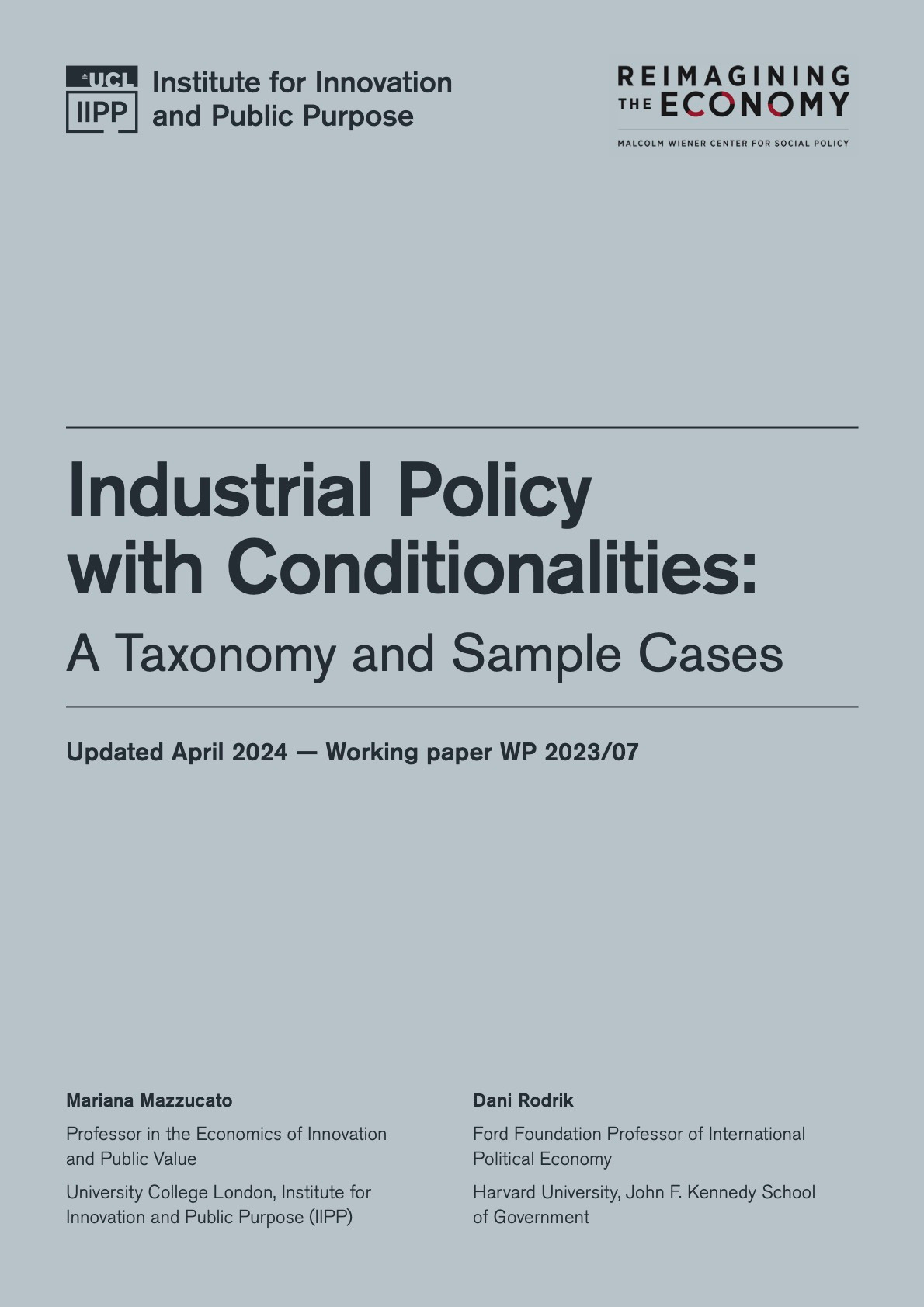Beyond 'Purpose-Washing': making public-private partnerships work
As Davos approaches, we need build relationships between business and government based on reciprocity, not rhetoric
Happy new year! Interesting that 2025 began with WTF (Wednesday, Thursday, Friday!).
On that note, later this month, government and business leaders will convene at the World Economic Forum in Davos, Switzerland. From those mountaintops we can expect to hear about issues like the need for stakeholder capitalism, purpose-oriented business, and climate-related goals. This year I will not be attending as I will be in Mexico City, amongst other things working with the new government on its green industrial strategy.

I have shared in the past about how to ensure that concepts like ‘stakeholder capitalism’ have teeth and about the need to make sure summits on mountains are not used just to purpose-washing the economy.
For example, in my Harvard Business Review article, What Role Should Business Play in Society?, I argued that the concept of purpose-oriented business should mean creating value differently from the start (pre-distributively) rather than picking up the mess later (redistributively). In other words, it should mean ensuring that companies are actually creating value with others in a mutualistic way, rather than extracting it in a parasitic way, and correcting afterwards with token gestures. And if we are to walk the talk on stakeholder capitalism, we must mitigate both the financial sector’s tendency to invest in itself (rather in the real economy) and many corporate’s proclivity to focus on short-term goals, such as boosting share prices (and hence stock options) via buying back their own shares—a whopping $7 trillion in share-buybacks in the last decade.
For different sectors this means different things. In the health industry, it means a new relationship between large pharmaceutical companies and the state. Given that so much health innovation is funded by state actors, like the National Institutes of Health in the USA, it is right for prices of medicines to reflect that—capping the prices of drugs—yet that doesn’t happen. Similarly, intellectual property rights should not be as strong, wide and upstream as they are—as that is not a good deal for the state which gives the private sector a 17-20 year monopoly with patents. You can read more about this in the final report of the World Health Organization Council on the Economics of Health for All that I chaired between 2021-2023. In the digital sector, it means making sure that algorithms are not being used in abusive ways: in our paper Regulating Big Tech: the role of enhanced disclosures in the Oxford Review of Economic Policy, my co-authors and I asked what this means for the disclosures of big tech companies—even more important today with algorithms often being used to extract value—a problem we call “algorithmic rents”.
I reiterated this point in my piece for Project Syndicate, Collective Intelligence and the Common Good, arguing that the notion of collective intelligence requires us to think about value differently. In other words, what are the terms of collaboration that generate collective intelligence – who is participating and how are rewards being distributed. Similarly, I have looked at the need to build stronger conditions of reciprocity in public-private partnerships. In a 2022 working paper on the social contract between the state and business and a 2023 working paper with Dani Rodrik on industrial policy with conditionalities, I examine in more details the different forms of conditionalities that can be used to make sure that reciprocity is enshrined in public-private partnerships.

For example, the public KfW bank in Germany makes it’s low-interest loans conditional on decarbonization requirements. In the UK, the government pledged £65.5 million to support the Oxford/AstraZeneca vaccine conditional that the company would operate on a not-for-profit basis during the pandemic. And in the US, the CHIPS Act – which was designed to support the semiconductor industry – made funding conditional on stipulations like limiting shareholder buybacks, requiring workforce development plans, and mandating sustainability commitments in construction and operations.
Most recently, I argued in my Project Syndicate piece, Good Growth Requires Getting Public-Private Partnerships Right, that generating good economic growth in the UK (i.e. growth that is inclusive and sustainable) requires getting public-private partnerships right. In other words, ensuring that the private sector is paying their fair share, and that both risks and rewards are shared. Historically, public-private partnerships in the UK have resulted in the state overpaying and the private sector underperforming. Rather than being ‘unreservedly pro-business’, as the Labour government claims to be in its green paper, it should embrace a confident, outcomes-oriented approach to public-private partnership that incentivizes the private sector to do its part in achieving collective goals such as the green transition. And we should learn from the mistakes of treating finance as though it were neutral. The form of finance matters.
For example, the way that private equity and investment banks are interacting with public infrastructure is creating dysfunctional outcomes. When Macquarie, an Australian asset management group, became a major shareholder in Thames Water (a water and waste utility) it ended up being saddled with £2 billion in debt. Given that a large percentage of the funding for UK investment is coming from Blackstone and Macquarie, we need to be much more strategic about how these partnerships are structured, ensuring they include clear conditions and accountability measures that align private incentives with public goals. This means moving beyond simply raising capital to establishing concrete expectations for outcomes, sharing both risks and rewards, and preventing the kind of excessive debt loading that can compromise essential public services.
Getting global finance right is a point I highlighted in a recent article for the UN Department of Economic and Social Affairs (UN DESA). Blended finance is often hyped as a game-changer, but it’s falling short. Public money dominates most deals, with private capital barely showing up. Instead of driving big, transformative change, blended finance is channeling scarce concessional public resources to de-risk and effectively subsidize privately-initiated, low-risk, low-impact projects that won’t move the needle.
To address this, I argue that we must embed conditionalities at every level of blended finance to align both public and private investments with societal goals. Public financing in blended deals should come with explicit targets, such as decarbonization or equitable healthcare, to ensure public funds actively steer private capital toward high-impact, mission-driven outcomes. This approach creates real additionality, focusing on transformative change rather than simply de-risking private returns.
So, even though I will be in Mexico in January, I hope Davos can be a place this month where purpose washing is called out and where we think of concrete ways to hold all actors to account when we make appeals to collective goals. In my Christmas post I talked about what this means for creating a Common Good dashboard. I am developing that work further in my new book. In an upcoming Substack post, I will reflect on what this means for other areas of the economy such as “water justice”—on the back of our new report from the Global Commission on the Economics of Water. And in another upcoming post on the UK economy, I will argue that the Net Zero mission is a great place to start.
For now, hope the new year is treating you well…




At least KKR has created ‘Ownership Works’ to encourage employee ownership. DAVOS is a facade. Governments need to state their values and negotiate for the people who elected them. Not live on awe of private equity . Most of the money is ours already ( pensions), so why are we not mutualising / collectivising. Time to stop talking as we need Mutual Equity not private.
We need a National Accountability Service, to ensure that any deals include these principles, that proper plans are written and that they are held accountable each quarter. Too much performative process and too many lawyers.